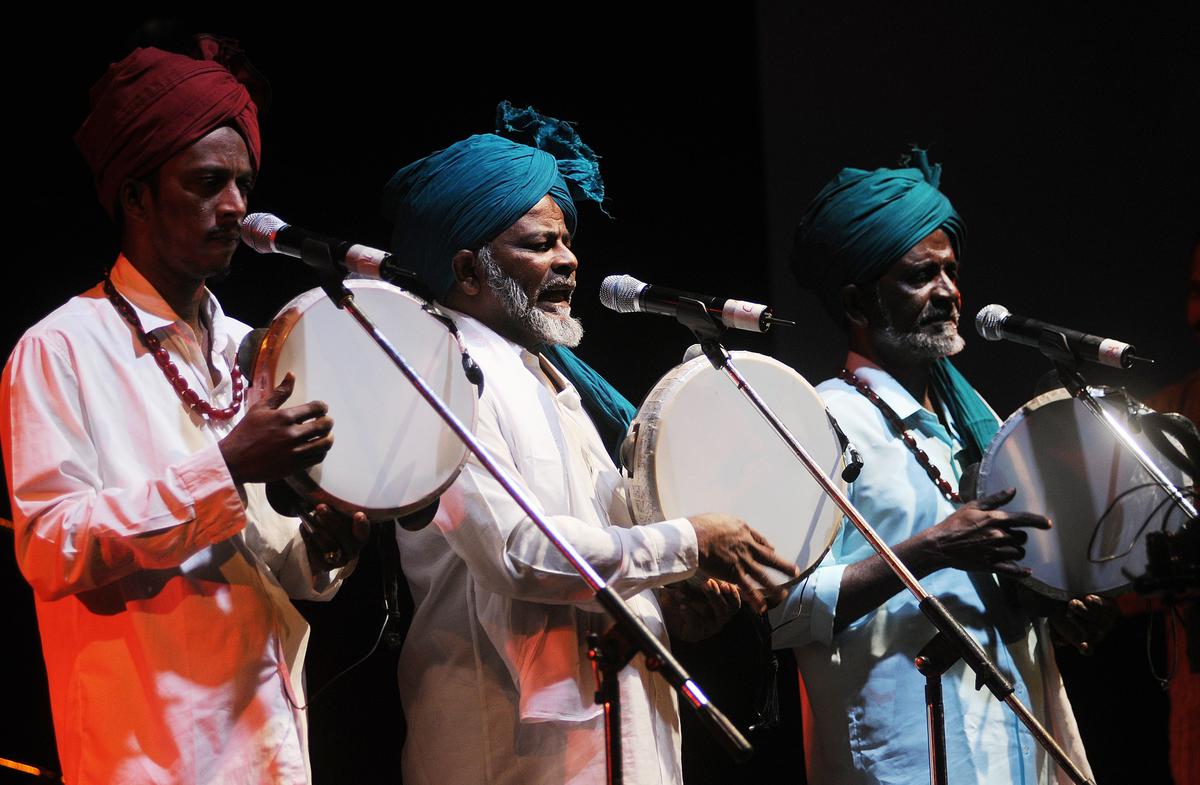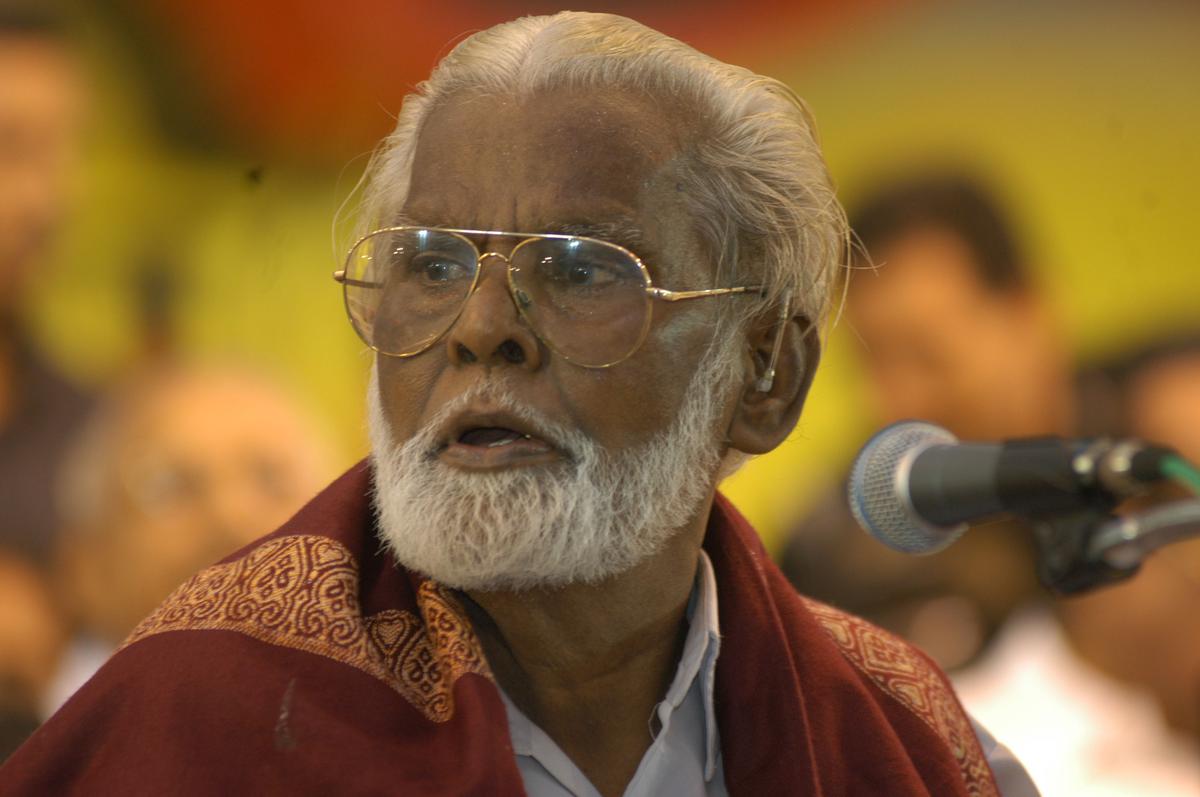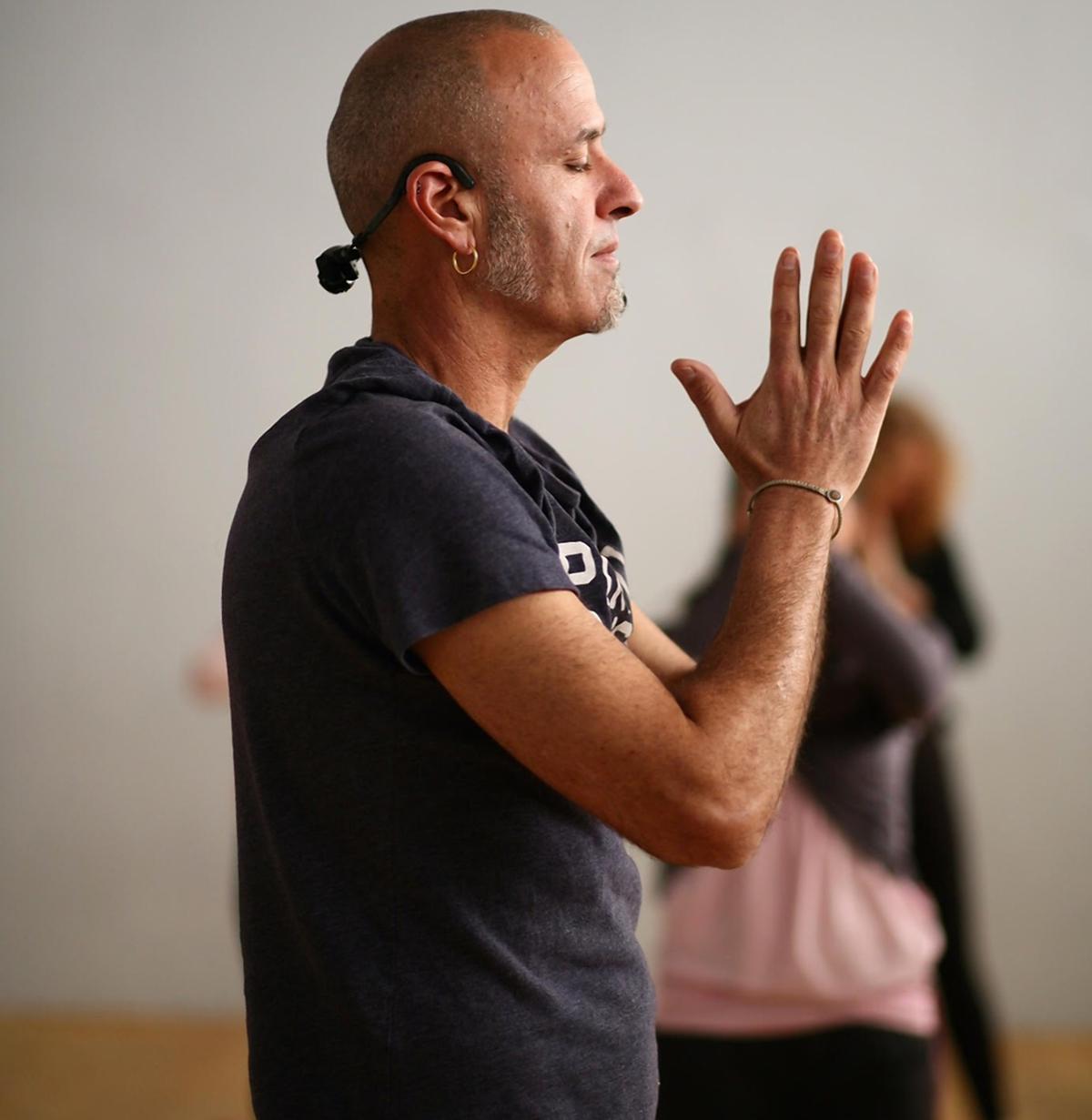Artistes from the coastal town are reinventing their music with a more contemporary interpretation of Islamic and Sufi music
Artistes from the coastal town are reinventing their music with a more contemporary interpretation of Islamic and Sufi music
M. Haja Maideen lives in Thethi village in Nagapattinam district. This third generation faqir (ascetic) of the Rifai tariqa (order) of Sufism has been singing Islamic devotional songs from the age of nine. He performs in and around his coastal village along with brother-in-law, Abdul Ghani. Together they present compositions set to the beat of the ‘dayra’. Haja’s elder brother Saburmaideen Babha Sabeer was the third member of the troupe until his demise in 2012.
The life and music of singers like Haja have been shaped by the Nagore dargah, dedicated to saint Abdul Qadir, just a few kilometres away from Thethi, and considered to be one of the biggest pilgrim centres in southern India.
During a recent visit to the dargah, the presence of music — instrumental and vocal — was as tangible as the five imposing minarets that frame the shrine. Whether as nagaswaram and thavil concerts at the nagara medai in the upper storey of the shrine, or as concerts by independent artistes and faqirs below, devotional tunes are seamlessly woven into the worship rituals.
Spotlight on talent
Haja, Abdul and Saburmaideen would have remained in the shadows but for EarthSync’s (an audio-visual production house) award-winning 2007 documentary, ‘The Laya Project’, that turned the spotlight on them.
For over two years, journeying through countries affected by the 2004 tsunami and documenting their folk music traditions, the Laya Project explored communities in India, Indonesia, Sri Lanka, Thailand, Maldives and Myanmar.
The trio became popular as ‘Nagore Boys’ with their simple rendition of ‘Ya Allah’, showcasing their ability to spin a mesmeric sonic web with their voices and tambourine-like instruments.
Later they were invited by the project’s Chennai-based Israeli music producer, Yotam Agam, to record ‘Nagore Sessions’, with a line-up of guest artistes including Zohar Fresco on Middle Eastern percussions, horns by Monks from the Tashi Lhunpo monastery, sarangi by maestro Murad Ali Khan, rhodes and programming by Patrick Sebag, harmonium by Palakkad Sreeram and bass by David Saban.
“The Laya Project made a huge difference to our lives,” says the 52-year-old Haja Maideen. “It brought us recognition from the Tamil Nadu government and social organisations, and we were invited to tour Australia, Middle Eastern countries and Israel with our songs. Up until then, going to even Chennai was a big effort.”
Most faqirs have no written song books. “We have memorised over 100 songs, taught by our forefathers, that we sing according to the occasion,” says Haja.

Nagore Boys
| Photo Credit: RAVINDRAN R
Impact on popular culture
With Sufism going back to over 400 years in Tamil Nadu, Islamic devotional music in the State has become a part of popular culture. It has two distinct strains: Islamic songs that focus on the core tenets of the faith, and the Sufi genre that consists mostly of ‘Pugazh maalai’ or paeans, in praise of saints and holy men whose shrines are still revered.
Islamic music worked its way into ‘gaana’ songs, that were originally meant to commemorate the dead and was integrated into Tamil movies especially in the 1950s. Songs such as ‘Mera naam Abdul Rehman’, ‘Ondre Solvaan’ and ‘Ellorum Kondaduvom’ were picturised on leading stars M.G. Ramachandran and Sivaji Ganesan playing Muslim characters.
One of the most recognisable voices of this genre is singer Nagore E.M. Hanifa, whose baritone and style continue to influence many even seven years after his demise. “My father started singing at the age of 13 in Tiruvaluntur, Thanjavur district, on a bullock cart, which was both stage and band transport. He learned early on to throw his voice without the aid of a microphone, which shaped his distinctive vocal style,” says his son Naushad Ali, who also moonlights as a singer.
While Hanifa was not too keen to be involved in films (he did sing in a few), he became the ‘voice’ of the Dravida Munnetra Kazhagam (DMK) with his rousing political anthems that were played before party meetings.
The Laya Project’s impact can be seen in the evolution of Islamic music in Tamil films in recent times. Composers like A.R. Rahman and Ghibran have brought a more nuanced exposure to this genre.
“Sufi themes involve both self-awareness and acquired knowledge. It could be a word or an epiphany that is expressed in poetic form. When you present a song with soul-stirring lyrics, people respond to it at a deeper level,” says Mashook Rahman, the Chennai-based lyricist who wrote ‘Khwaaja enthan Khwaaja’ for the Tamil version of the 2007 magnum opus Jodhaa-Akbar. Sung by Rahman (who also composed the film’s music), the hymnal tune continues to stand out for its mellow exploration of spirituality.

Nagore Hanifa
| Photo Credit: MOORTHY M
Online breakthrough
Sound recording technology, and alongside it, the market for devotional songs has progressed in many pilgrim centres like Nagore to create a thriving music scene online. Some of the more successful singers in Nagore have installed recording studios at home.
“Sufi musicians of yore used to write their own lyrics and compose the tunes, besides playing the instruments. But as they lost out on education, they started using poems written by others. For more than a decade, there seemed to be nobody to follow Nagore Hanifa. We are trying to change this with a more contemporary interpretation of Islamic and Sufi music,” says Umar Farooq, singer and proprietor of the recording studio Sufi Musix in Chennai. For his 2019 video song ‘Ya Meera-Qadar Wali’, Umar collaborated with Iranian percussionists to get a more authentic soundscape for the drums.
Interestingly, most of these productions are self-financed because the music is seen as a religious offering. “It costs around Rs. 1 lakh to produce a high quality song with video, but nobody talks about money; we all just pitch in with whatever we have,” says Umar.
“At present, Sufi music isn’t organised in Tamil Nadu. Faqirs are doing their own thing. Film composers are trying it in movies. And independent producers like us are exploring a new sound in our recording studios,” says Umar.
Rooted to Nagore
Many Sufi singers have stayed rooted to Nagore and its heritage (the saint Abdul Qadir is said to have learned music along with Hindustani prodigy Tansen from the Sufi mystic Muhammad Ghauth). “We sing at the dargah for our own happiness, and don’t expect any payment ,” says Nagore Hafil Sahib Qadiri, who has been singing for 20 years as part of the Qadiriya Qaseeda group in Nagore.
The 40-year-old has worked with companies like Sufi Musix as well, producing lyrical videos in Urdu and Tamil. With 150 songs in his repertoire, Hafil Sahib says he has curtailed singing at social occasions (for a fee) and is now concentrating on Sufi music at the dargah.
It is important to preserve the folk music traditions of the Tamil Sufi minstrels as the younger generation of faqirs prefer a more mainstream life. Haja Maideen’s son, for example, has taken up car driving for a living.

Yotam Agam
| Photo Credit: Special Arrangement
Recalling the serendipitous discovery of the Nagore Boys by an Indonesian colleague, who was passing by the dargah during the Laya Project, music producer Yotam (who returned to Israel in 2020 after nearly 15 years in Chennai) says that he remains fascinated by Tamil Sufi music.
“Unlike North Indian and Pakistani Sufi groups that use big ensembles of South Asian musical instruments, Tamil Sufi singers have only the frame drum, common in Arab countries. People can go into a trance by just listening to the chant-like refrains of their songs,” says Yotam.
Stay connected with us on social media platform for instant update click here to join our Twitter, & Facebook
We are now on Telegram. Click here to join our channel (@TechiUpdate) and stay updated with the latest Technology headlines.
For all the latest Entertainment News Click Here
For the latest news and updates, follow us on Google News.
